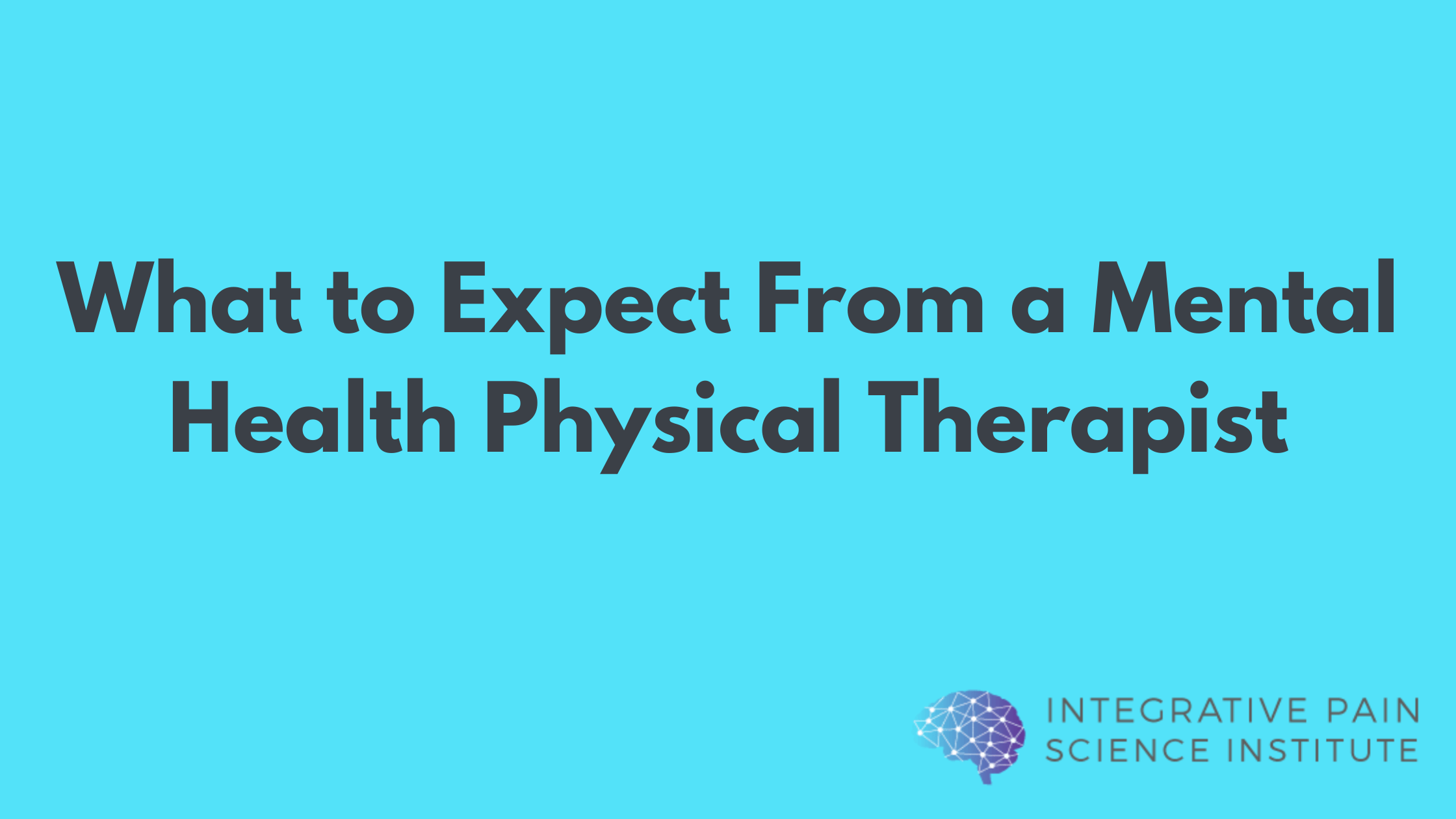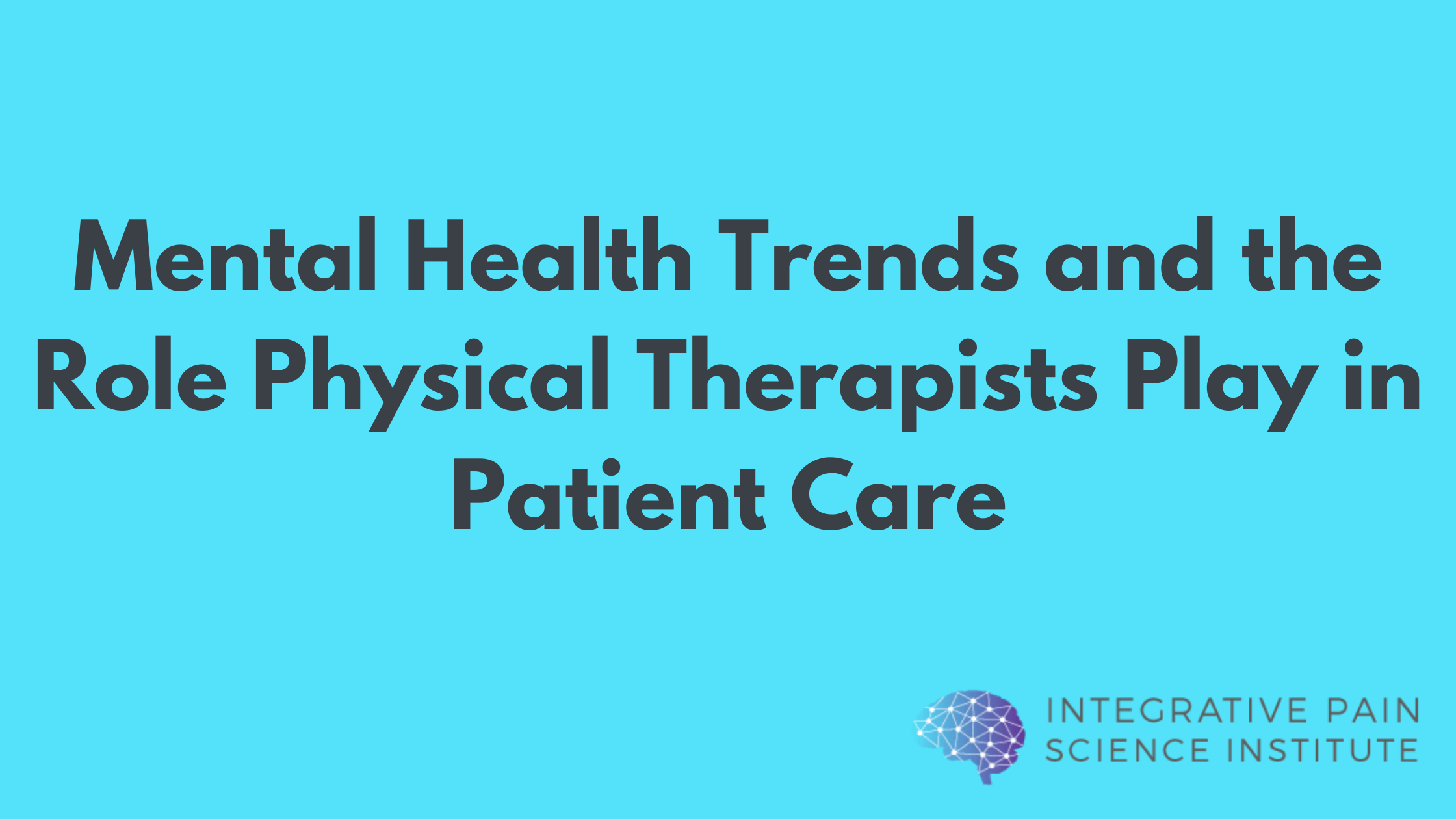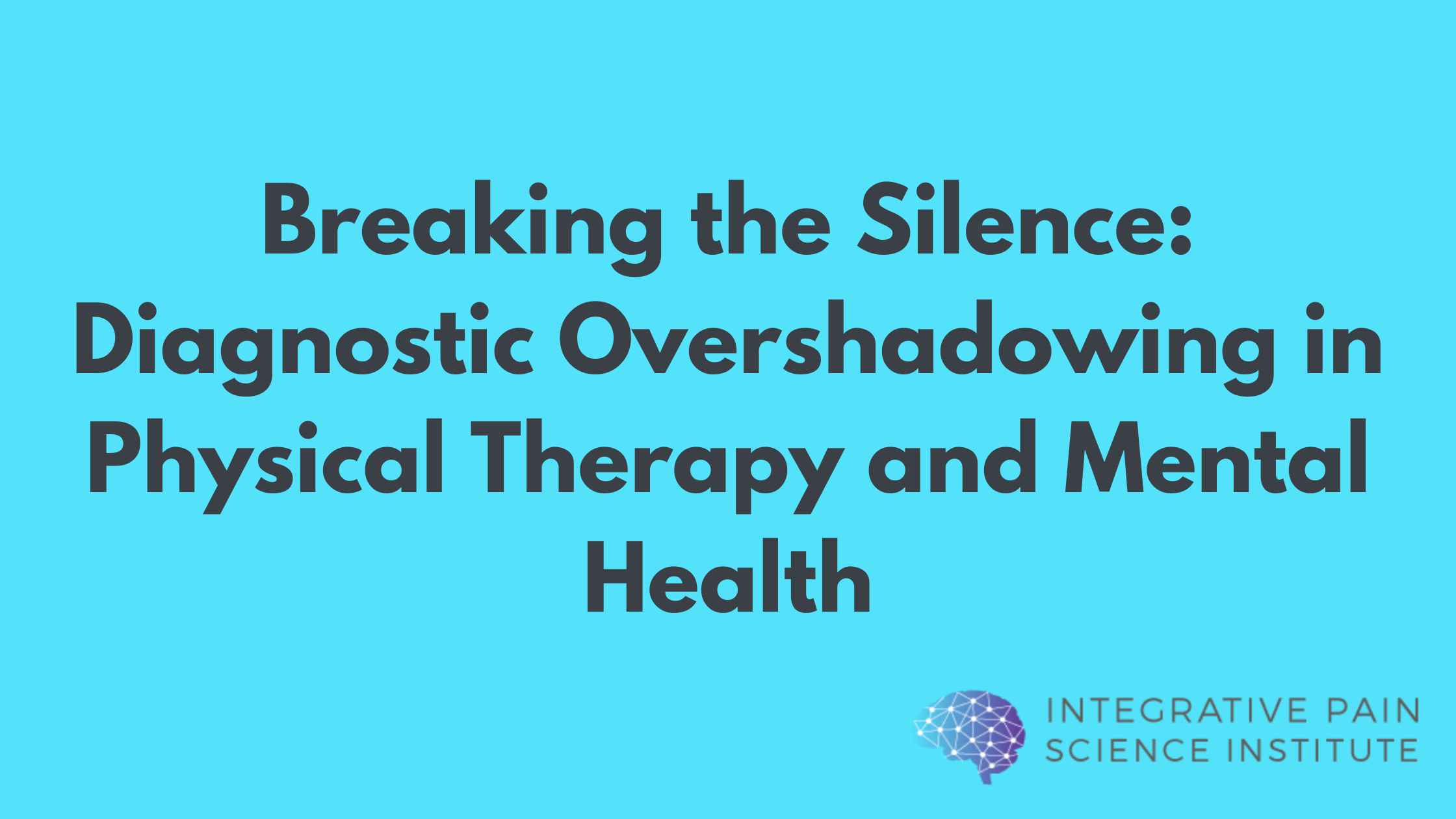Research has investigated the associations between low health literacy and poorer outcomes in individuals with chronic conditions such as cardiovascular disease, COPD, and diabetes (1). However, an area that remains under-explored is the possible relationship between health literacy and health outcomes in patients with chronic pain (2). Health literacy in patients with chronic pain has the potential to play a crucial role into how they self-manage, what healthcare treatment they seek out, and what course of action they may take. This is in line with the important concept that a person’s beliefs and understanding of their own condition can be very influential on their pain experience (3).

HEALTH LITERACY AND HEALTH OUTCOMES
A 2018 cross-sectional study published in the Journal of Physiotherapy conducted in Ireland sought to investigate the possible link between health literacy, health outcomes, and self-management behaviors in adults with chronic pain (pain lasting more than 3 months). Participants answered questions regarding their demographics, status of their pain, disease-related knowledge, quality of life, beliefs about their pain, and their health literacy. Out of the 131 participants, 54% were found to have inadequate literacy, which was measured using the newest vital sign (NVS). Authors Mackey et. Al found that inadequate health literacy was associated with older age, unemployment or retirement status, lower levels of formal education, and a greater number of comorbidities. They also found that those with lower levels of health literacy were less likely to utilize non-emergency hospital services or allied health services. No associations between health behaviors and health literacy levels were found in terms of smoking, diet, alcohol intake, physical activity levels, or weight.

THE IMPORTANCE OF SELF-MANAGEMENT
Self-management is at the center of the recommended approach for treating patients with chronic pain while utilizing the biopsychosocial model (5). In the previously mentioned study, participants with higher levels of health literacy were less likely to express beliefs that their pain was controlled by chance or powerful others, such as healthcare professionals (4). This suggests the possibility that those with higher health literacy are aware of their own responsibility to manage their pain levels which could translate to motivation to participate in self-management strategies. However, in order for patients to accept and begin practicing self-management strategies they need to have knowledge regarding their current health condition, possible treatments, and course of treatment regarding health services (6). This backs-up the notion that inadequate health literacy is a crucial roadblock to self-management in patients with chronic conditions, including chronic pain (2,4). Improving and enhancing a patient’s health literacy has the potential to have a positive influence on their self-management skills.
Dr. Tatta’s simple and effective pain assessment tools. Quickly and easily assess pain so you can develop actionable solutions in less time.
COMMUNICATION BETWEEN PATIENT AND HEALTHCARE PROVIDER
Health literacy likely indirectly impacts the evolution of a patient’s self-management skills and behaviors through their own knowledge, comprehension of, and beliefs about their condition and pain control (4). Once way health care providers can enhance a patient’s health literacy is through individualized patient education and communication. It has been determined in previous evidence that healthcare professionals may mistakenly overestimate a patient’s capacity to comprehend health-related information (7). This obviously becomes problematic when trying to provide education that enhances a patient’s understanding of their pain or health condition. This mistake made by healthcare professionals may be correlated with decreased awareness of the impact low health literacy has and how prevalent it is (8). Providing clear, simple communication that highlights a few key points and avoids the use of medical terminology are two simple ways to enhance a patient’s understanding when providing education. Additional strategies include using visual aids and utilizing the teach-back method to confirm the patient’s understanding (9). Open, honest communication that is presented in a manner that is non-threatening can help encourage patients to feel more comfortable asking questions and seeking advice regarding their current pain or health conditions.

Shelby McClure is a third year Doctorate of Physical Therapy student at Augusta University in Augusta, Georgia and will be graduating in May of 2020. She completed her undergraduate education at Auburn University in Alabama where she earned a B.S. in Fitness, Conditioning, and Performance in addition to a B.S. in Nutrition and Wellness.
Shelby began dancing at a young age which helped to shape her initial interest in health. During college, she worked as a dance instructor as well as a group fitness instructor, which eventually led her to pursue a career in physical therapy.
Throughout her time at Augusta University and subsequent clinical rotations, Shelby realized her passion for pain science and psychologically informed physical therapy. Shelby is currently completing a 4-week elective with the Integrative Pain Science Institute prior to her graduation.
Shelby is from the Atlanta, Georgia area where she currently resides with her husband of 2 years.
To learn more about Shelby, visit her LinkedIn.
REFERENCES
- Berkman ND, Sheridan SL, Donahue KE, Halpern DJ, Crotty K. Low health literacy and health outcomes: an updated systematic review. Ann Intern Med 2011;155:97–107.
- Mackey LM, Doody C, Werner EL, Fullen BM. Self-management skills in chronic disease management: what role does health literacy have. Med Decis Making 2016;36:741–59.
- Louw, A., Schmidt, S., Puentedura, E. and Zimney, K., 2018. Pain Neuroscience Education. 2nd ed. Minneapolis, MN: OPTP, pp.1-30.
- Mackey LM, Blake C, Casey M-B, et al. The impact of health literacy on health outcomes in individuals with chronic pain: a cross-sectional study. Physiotherapy. 2018;105(3):346-353. doi:10.1016/j.physio.2018.11.006.
- Scottish Intercollegiate Guidelines Network. Management of chronic pain: SIGN publication no.136. Edinburgh2013.
- Institute of Medicine (U.S.A.). Relieving pain in America: a blueprint for transforming prevention, care, education, and research. Washington, D.C: The National Academics Press; 2011.
- Mackert M, Ball J, Lopez N. Health literacy awareness training for healthcare workers: improving knowledge and intentions to use clear communication techniques. Patient Educ Couns 2011;85:e225–8.
- Semmons J. The role of physiotherapy in the management of chronic pain. Anaesth Intensive Care Med 2016;17:445–7.
- Kountz DS. Strategies for improving low health literacy.Postgrad Med. 2009;121(5):171–7. https://doi.org/10. 3810/pgm.2009.09.2065.



